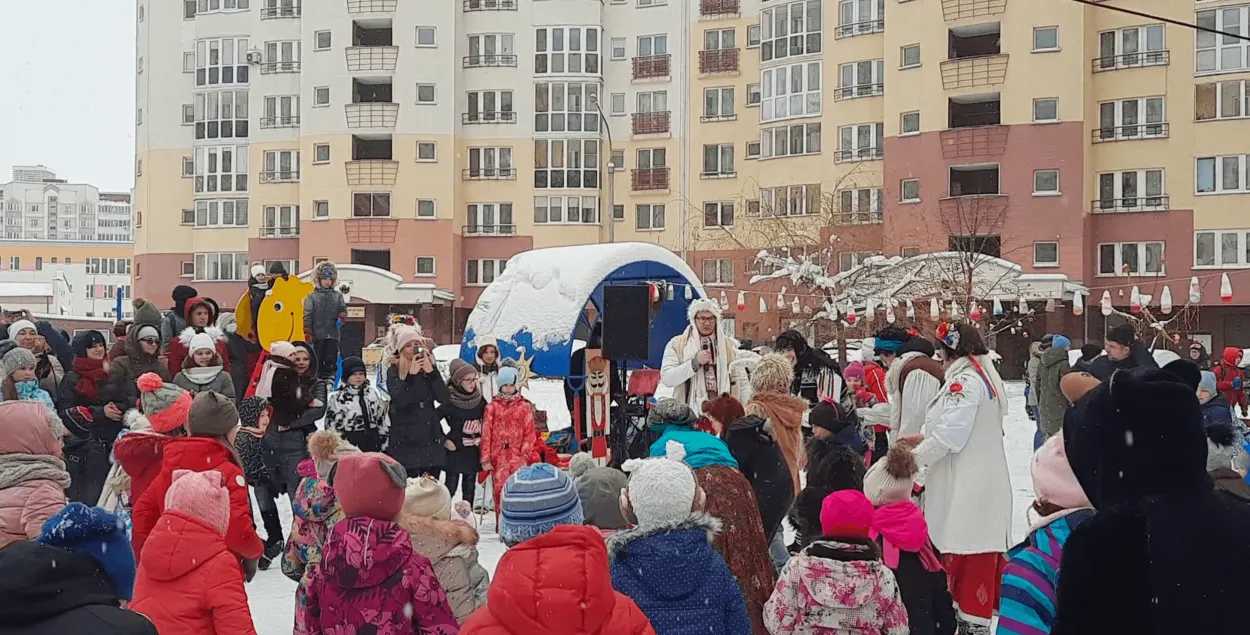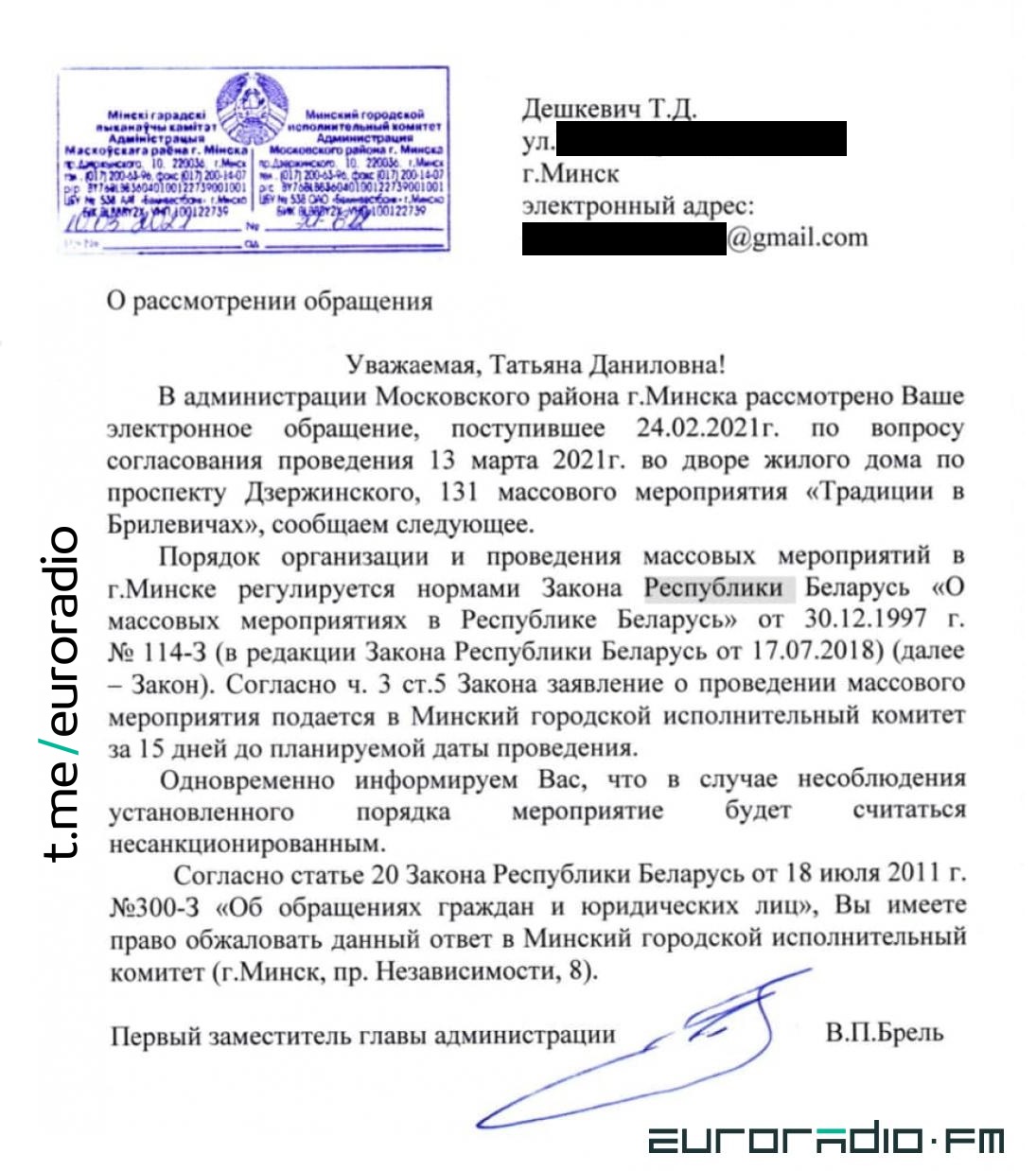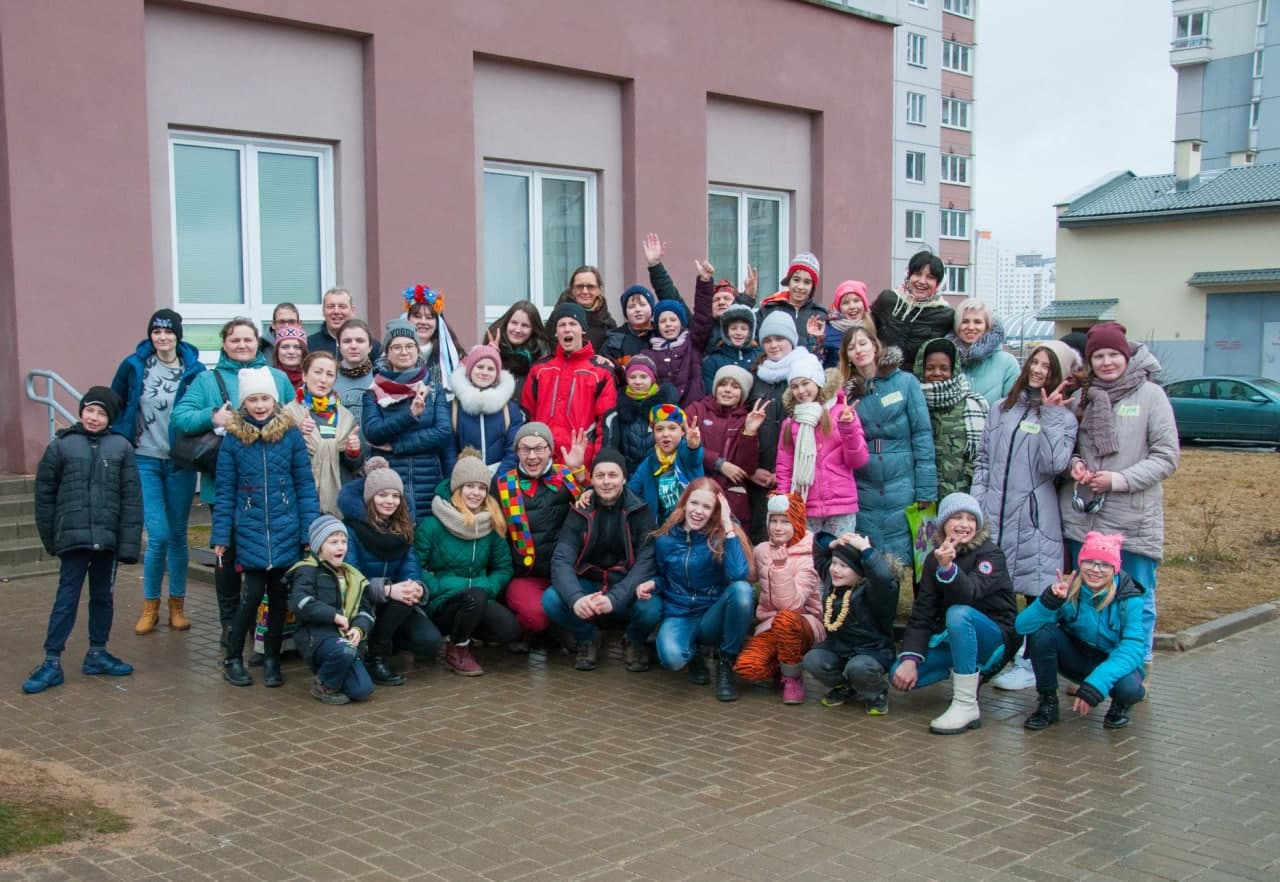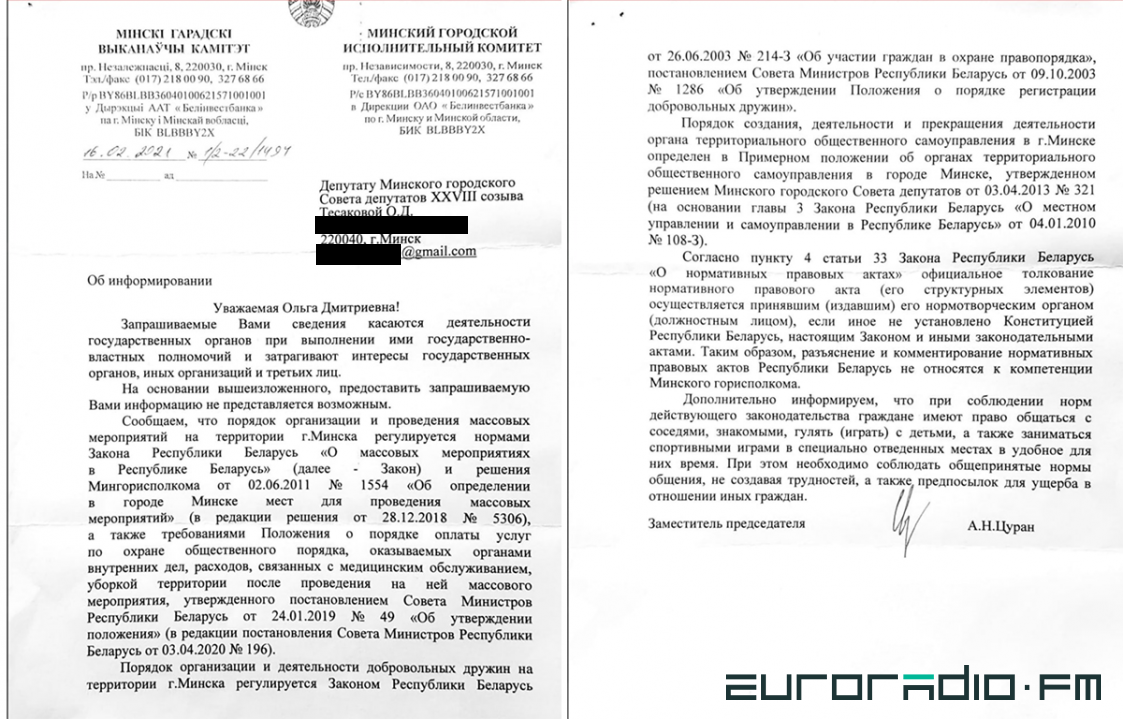Minsk officials set to end local self-government

Pancake Day, organized by self-government body #127
Officials have warned residents of Brylevichy, a neighborhood in the south-west of Minsk, that the Pancake Day, which they wanted to celebrate on March 13, would be considered an unsanctioned event. It seems that this is nothing new: the citizens of Belarus have faced more than such bans in the past six months. However, this case is special. By a letter signed by the deputy head of Maskouski District Administration Vitaly Brel, Minsk authorities have actually put an end to local self-government bodies that have been developing in Minsk neighborhoods in recent years.
The yard festival was supposed to take place in the "Megapolis" housing estate, one of Minsk's protesting neighborhoods. The same one with a high-rise where a WRW flag used to fly before it was taken off seven times by the law enforcement officers. The organizer of the Pancake week was local self-government body number 127, a collegial body of territorial public self-government, which operates in Brylevichy.
"We drew up a plan [of holidays] for 2021. In January, we sent it to the housing and utilities department and the district administration. In February, we filed a notification with a request to include our holidays in the plan of the neighborhood, in accordance with the law on self-government and in accordance with the plan, which we, the initiative citizens and self-governing body, approved," says Tatsyana Dzeshkevich, chair of self-governing body #127. "Then we received a reply from the administration that the Pancake Day would be considered an unauthorized event in accordance with the law "On Mass Events".
Euroradio: So it turns out that a paddy wagon may come for you at Pancake Day now?
"A paddy wagon has come to us before, but there were no arrests," Tatsiana continues. "I took notice and the answer of the administration, that we were notified. But we've never had a written notification that the event was not sanctioned. There were paddy wagons parked at the "Zubr" [a luminous figure of the bison is a traditional gathering place for the residents of Brylevichy -- Euroradio], but nobody got arrested then. They just watched for flags or slogans. I don't know what will happen now.
What are self-governing bodies?
In Minsk, there are more than a hundred collegial bodies of territorial public self-government bodies. It is a group of residents of a particular area who want to make life more comfortable, develop local initiatives and solve local issues with the state's support.
Such bodies act within the framework of the law "On Local Government and Self-Government." They are allowed to improve neighborhoods, maintain the sanitary condition of entrances, and help socially vulnerable citizens.
In fact, they are legal local communities, which are supported by the authorities. In some cases, they can easily ask for help from the district administration, housing and utility services, social services, or "its" deputy.
There are also tasks that the authorities set before the bodies of territorial public self-government. For example, deal with law enforcement issues: activists can visit dysfunctional families with a district police officer or help those who have returned from prison to adapt.
The activists of such bodies are elected by open or secret ballot at a local meeting. Candidates for the activists can be nominated by residents and the local executive and administrative authorities. As a rule, the activists have a room where they can hold meetings, receive new residents on certain issues and other events.
It was allowed before, and now it's not
Self-government body #127 in Brylevichy is one of the very first in Minsk.
"We have won prizes several times. In 2019 we took third place for the organization of work," says Tatsiana Dzeshkevich. "We organized many events on different topics: from children's carols to adult cultural heritage preservation events. We used to be allowed to do all these things and get their approval.
The relationship between the authorities and Body #127 has changed lately, and these changes cannot be called constructive. First, local activists did not get approval from the Maskouski district's administration for the best New Year's yard festival. But it was held. Then there was the Kaliady fest.
"We sent a notice, but we were told that according to the law on mass events, we had to address the Minsk City Executive Committee. We went to Minsk city executive committee, but they said that the application wasn't properly filed. And they said to ask the administration to include us in the district plan.
You already know what happened later: the district administration insists that the self-government body has to organize their holidays by the law "On Mass Events." But this is tricky. Euroradio doesn't know of a single instance where officials have allowed a mass event in a protesting courtyard that has been applied for under this law.
Why did the self-government body decide that they had the right to organize anything at all?
According to Article 26 of the law "On Local Government and Self-Government," one of the territorial public self-government tasks is to "assist in the organization of leisure activities of citizens." And what is the organization of a courtyard party if not assistance in organizing the courtyard residents' leisure?
To clarify the situation, Tatsiana Dzeshkevich turned for help to deputy Volha Tsesakova who sent an inquiry to the chairman of the Minsk City Executive Committee. She drew the officials' attention to the fact that the district administration had stopped coordinating the self-government body's activities. She asked for clarification: "Are yard events, tea parties, as well as any friendly conversation between two people a mass event? Is a date between two young people also a mass event called a meeting?"
The deputy received a reply from the Minsk City Executive Committee, signed by Deputy Chairman Artsiom Tsuran. The documents that regulate this or that action are also listed there: "Citizens have the right to communicate with neighbors, acquaintances, engage in sports games in specially designated places, while observing the generally accepted norms of communication, not creating difficulties and preconditions for damage to other citizens."
Tsesakova believes that she received from Tsuran "some information related to our questions and incomplete answer". We should add from ourselves that it does not follow from the reaction of the official that there will not be a paddy wagon at the Pancake Day in the "Megapolis" housing estate.
What's next?
The self-government body plans to prove that the leisure activities, that it organizes for residents of the yard do not fall under the law "On Mass Events".
"We have the right as self-governing bodies to self-organize in our own backyards. We have the right to hold any kind of event in our yards. What sanction do we need? Why do we have to get it approved?" Tatsiana Dzeshkevich asks rhetorically.
She says that their body is going to act within the law. It means there will be a lot of bureaucratic struggle. As for Pancake Day, scheduled for March 13, the activists did not have time to apply to the court to protect their right to organize it. That's why the Body was no longer organizing it.




















